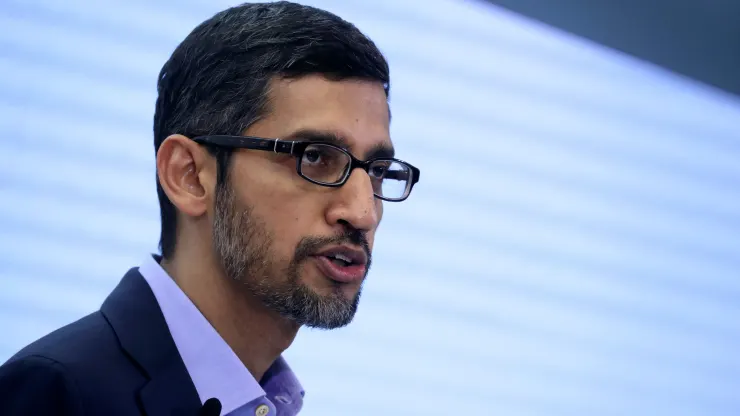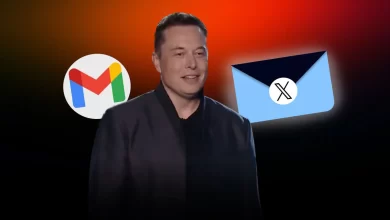Google blocks its Gemini chatbot from answering questions on elections
Speaking on artificial intelligence at a Bruegel think tank conference in Brussels, Belgium, on January 20, 2020, is Sundar Pichai, the CEO of Alphabet and Google.

The kinds of election-related questions that users can ask Google’s Gemini chatbot will be limited, the company revealed. It also noted that the adjustments have already been implemented in the United States and India, where elections are scheduled for this spring.
“Due to the significant importance of this topic, we have started to implement limitations on the categories of election-related queries that Gemini will answer,” Google stated in a blog post on Tuesday. “We take seriously our obligation to provide these kinds of queries with high-quality information, and we’re always trying to strengthen our defenses.”
Changes are in keeping with Google’s intended approach to elections, a Google official told CNBC.
The representative stated, “As we shared last December, we’re restricting the types of election-related queries for which Gemini will return responses in anticipation of the numerous elections happening around the world in 2024 and out of an abundance of caution.”
The news follows Google’s revelation last month that it was discontinuing its AI picture creation tool due to a number of issues, including previous errors and divisive comments. As part of a big rebranding initiative, the corporation debuted the image generator earlier in February through Gemini, Google’s primary collection of AI models.
During a panel discussion at the Mobile World Congress conference in Barcelona last month, Demis Hassabis, the CEO of Google’s DeepMind division, stated, “We have taken the feature offline while we fix that.” “We anticipate having that back online within the next few weeks, if not sooner.” The product was not “working the way we intended,” he continued.
The announcement coincides with digital platforms getting ready for a momentous year that will see elections in over 40 nations that will impact up to four billion people globally. According to data from machine learning startup Clarity, the amount of deepfakes generated has increased by 900% annually, raising severe worries about disinformation related to the election.
Since the 2016 presidential campaign, when Russian actors attempted to use low-cost and simple methods to disseminate false material across social media platforms, election-related disinformation has been a significant issue. The quick development of AI is currently worrying legislators even more.
In an interview with CNBC last month, Democratic state senator from California Josh Becker stated, “There is reason for serious concern about how AI could be used to mislead voters in campaigns.”
The rapid advancement of technology has not kept up with the need to detect and watermark deepfakes. There are ways around the security measures put in place by the platforms that produce AI-generated photos and films, even if they agree to include invisible watermarks and specific kinds of metadata. Screenshotting occasionally even fools a detector.
Google has made it clear that it is pursuing and actively investing in artificial intelligence (AI) assistants and agents in recent months. The phrase is frequently used to refer to a variety of productivity aids, such as chatbots and coding assistants.
AI agents were emphasized by Alphabet CEO Sundar Pichai as a top focus during the company’s Jan. 30 earnings call. Although he acknowledged that there is “a lot of execution ahead,” Pichai stated that in the long run, he hopes to provide users with an AI agent that can perform an increasing number of jobs, including those seen in Google Search. Similarly, CEOs of massive tech companies like Microsoft and Amazon reaffirmed their commitment to developing AI agents as tools for productivity.
During a call with reporters in February, Sissie Hsiao, a vice president at Google and general manager for Google Assistant and Bard, stated that the company’s Gemini redesign, app releases, and feature upgrades were the first steps toward “building a true AI assistant.” (Source:cnbc.com)




